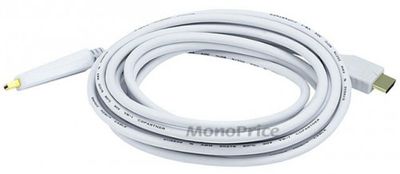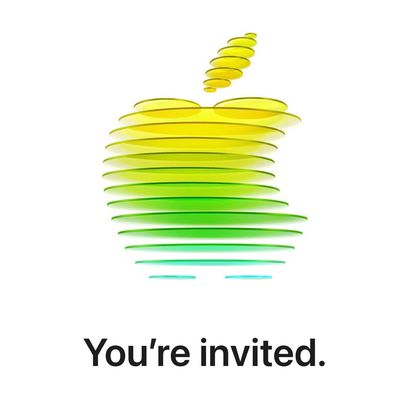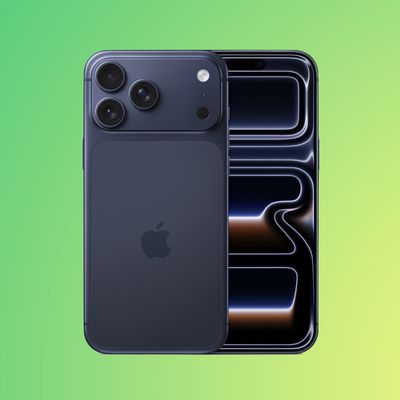MiniDisplay Port to HDMI Cables 'Unlicensed' and Cannot Be Sold
Mini DisplayPort to HDMI cables, such as those used to connect recent-generation MacBook Pro's to high-definition televisions do not comply with the official HDMI specifications.

HDMI Licensing, LLC, the trade group that controls adoption of the HDMI specification, explained the situation to TechRadar UK:
The HDMI specification defines an HDMI cable as having only HDMI connectors on the ends. Anything else is not a licensed use of the specification and therefore, not allowed.
All HDMI products undergo compliance testing as defined by the Compliance Testing Specification. The CTS clearly defines necessary tests for all products defined in the HDMI Specification. Since this new cable product is undefined in the Specification, there are no tests associated with this product. It cannot be tested against the Specification.
Basically, a cable that has a HDMI connector at one end and a Mini DisplayPort connector at the other is not a "true" HDMI cable, and is thus, by definition, outside the HDMI specification.
As a result, these cables are considered unlicensed by HDMI Licensing and are not to be sold. Mini DisplayPort to HDMI cables can still be found, for example at the Apple Online Store -- but some retailers, like MonoPrice.com, have already discontinued their mDP to HDMI offerings.
Instead, users can buy Mini DisplayPort to HDMI Female dongles. These dongles, when combined with a standard HDMI-HDMI cable, connect MacBook Pros, and other devices with mDP ports, to high-definition televisions and desktop monitors that accept HDMI.
Most Macs made in the past 18 months support multichannel audio passthrough via Mini DisplayPort. This means that users can connect one cable from their computer to a HDTV or surround sound system, and it will carry audio and video signals over the single cable.
Popular Stories
Apple today announced a "special Apple Experience" in New York, London, and Shanghai, taking place on March 4, 2026 at 9:00am ET.
Apple invited select members of the media to the event in three major cities around the world. It is simply described as a "special Apple Experience," and there is no further information about what it may entail. The invitation features a 3D Apple logo design...
Apple is looking for a "breakthrough" with its push into wearable AI devices, including an "AirTag-sized pendant," according to Bloomberg's Mark Gurman.
In a report this week, he said the pendant is reminiscent of the failed Humane AI Pin, but it would be an iPhone accessory rather than a standalone product.
The pendant would feature an "always-on" camera and a microphone for Siri voice...
Back at WWDC 2025, Apple revealed that it was planning to allow CarPlay users to watch video via AirPlay in their vehicles while they are not driving, and the first beta of iOS 26.4 suggests the feature may be nearing availability.
There are several new references to CarPlay video streaming functionality within the iOS 26.4 beta's source code. The feature is not yet visible to users, but...
New trade-in data indicates that Apple's iPhone 17 Pro Max has rapidly become the single most traded-in smartphone.
According to a new report from SellCell, Apple's latest flagship iPhone has quickly risen to the top of the independent trade-in market, accounting for 11.5% of all devices appearing in the top-20 trade-in rankings just months after release. The analysis is based on SellCell...
Apple on Monday invited selected journalists and content creators to a "special Apple Experience" on Wednesday, March 4 in New York, London, and Shanghai.
At an Apple Experience, attendees are typically given the opportunity to try out Apple's latest hardware or software. Following the launch of Apple Creator Studio last month, for example, some content creators attended an Apple Experience...






















